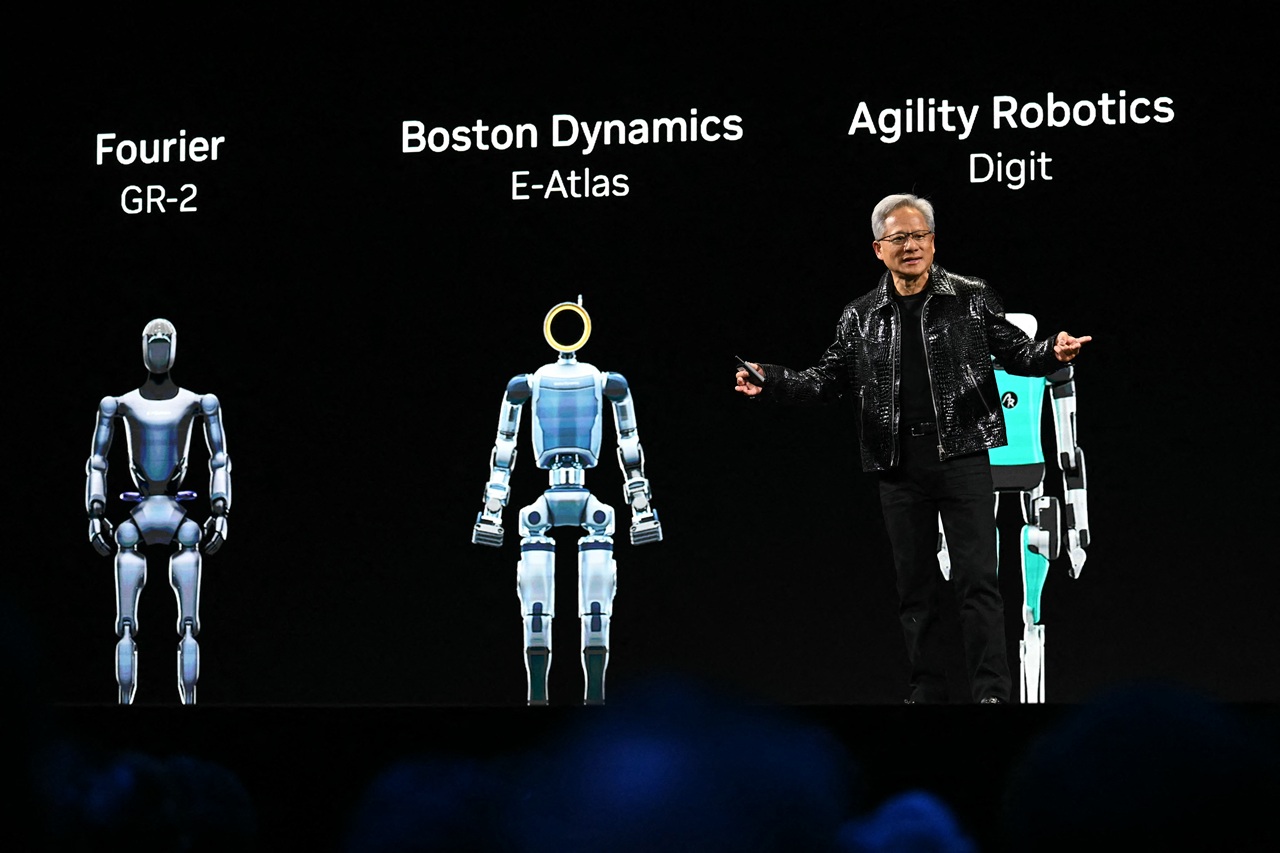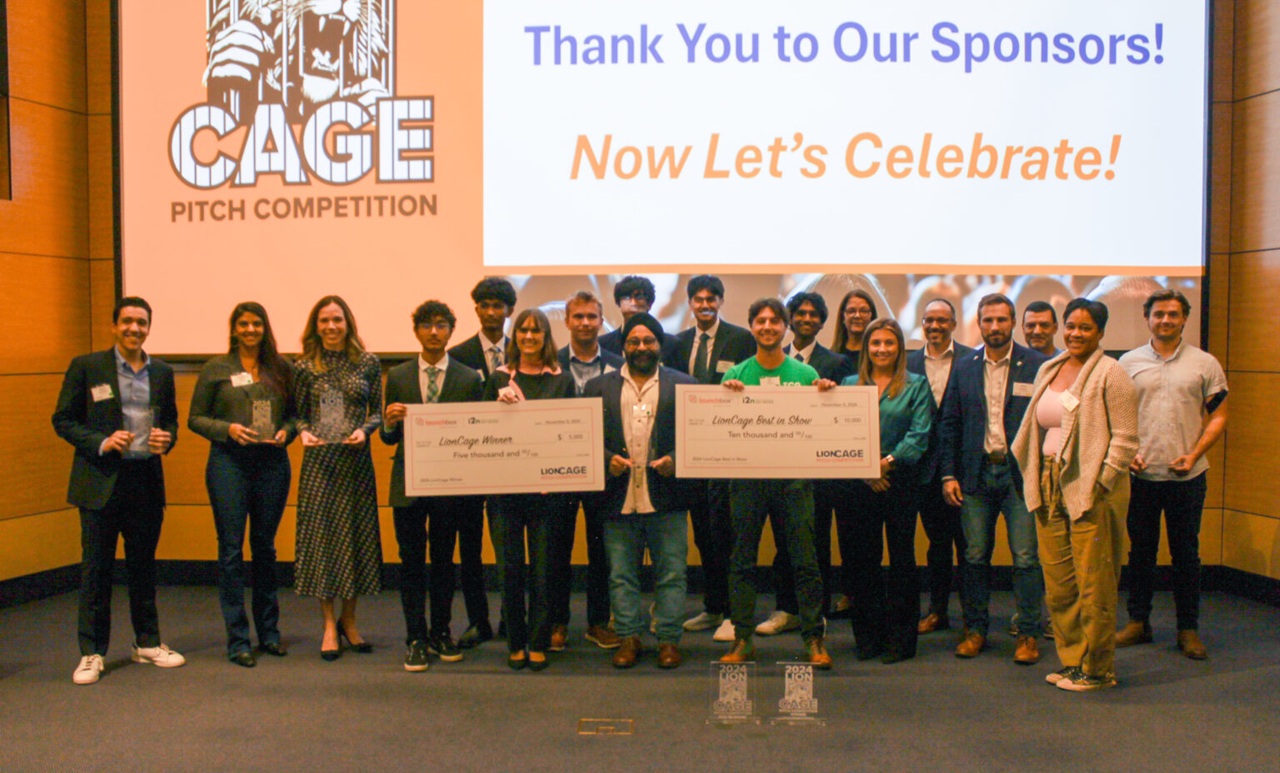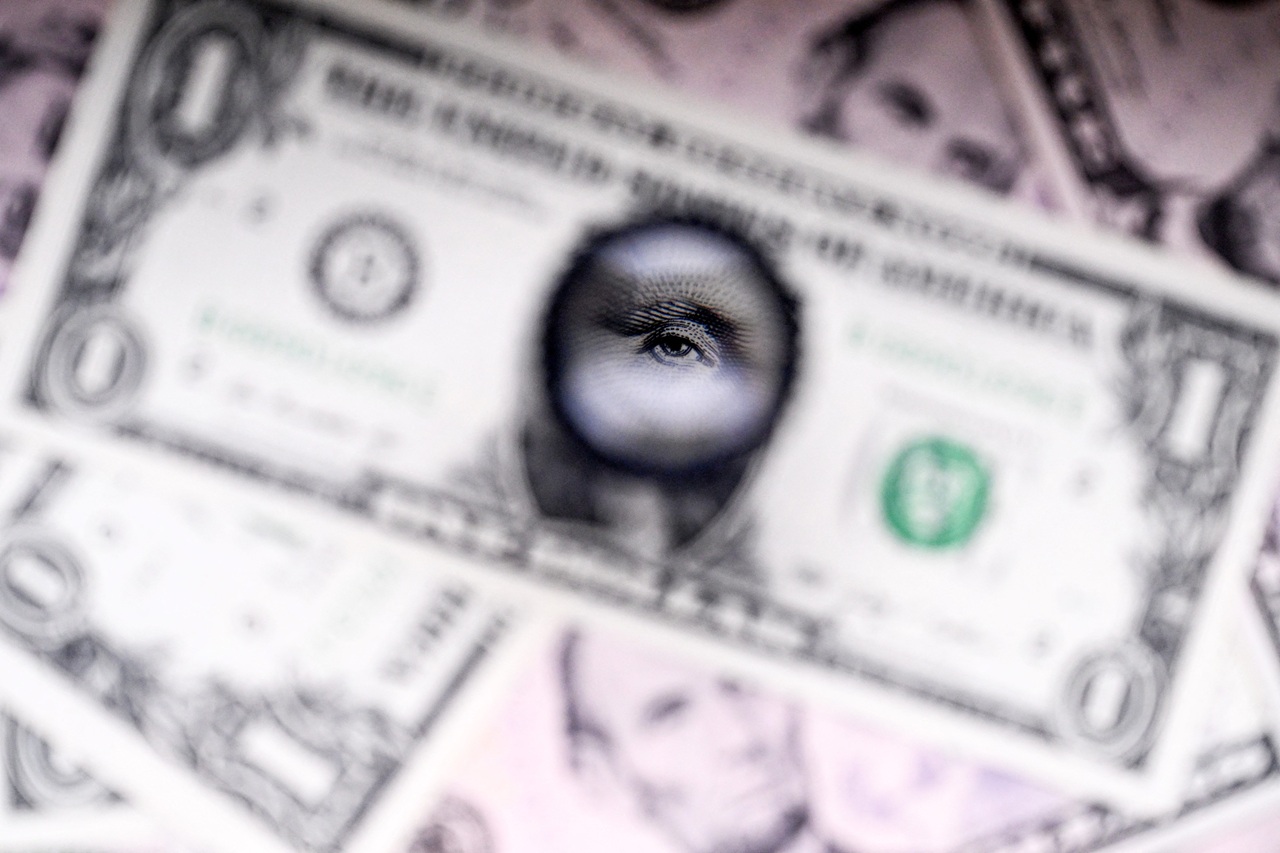
What will the future of AI look like in 2025 according to Jensen Huang?
CES confirmed what many already suspect: AI disruption has no reverse gear, but a dizzying future ahead.
Artificial intelligence (AI) is revolutionizing the technological world at a dizzying pace, and the Consumer Electronics Show (CES) 2025, held in Las Vegas, was the perfect stage to prove it.
At this fair, which annually showcases the most outstanding advances in technology, Nvidia and its CEO, Jensen Huang, stole the show by unveiling innovations aimed at transforming sectors such as mobility, video games and robotics.
Jensen Huang, a central figure in the technology industry, headlined a packed event at the Michelob Ultra Arena at the Mandalay Bay resort, where he presented Nvidia's latest developments. The company, known for its graphics unit processors (GPUs), has led the adoption of AI in data centers and is expanding its influence into other areas. "When we see one AI-driven application after another, the most important thing is that machine learning has changed the way computing is done," Huang said during his keynote.
Huang's speech not only highlighted the impact of AI on modern technology, but also coincided with a historic moment for Nvidia, whose shares have reached record highs, raising the company's market valuation to more than $3.4 trillion. Companies such as Google, Microsoft, Meta and OpenAI have adopted Nvidia GPUs to power their AI systems, cementing the company as an undisputed leader in the field.
Nvidia has also focused its technology on the average user experience, with a new generation of GPUs designed for desktops and notebooks. The GeForce RTX 50 series, based on the Blackwell architecture, represents a quantum leap in PC performance. "Blackwell, the engine of artificial intelligence, has arrived for PC gamers, developers and creatives," said Huang.
The new computers powered by RTX chips not only offer advanced gaming capabilities, but also integrate AI features that promise to revolutionize user productivity and creativity. One model highlighted during the presentation had a base price of $1,299, with the RTX chip available for $549, which exhibitors consider a competitive offering in the mass consumer market.
According to Huang, AI-enabled PCs will make it possible to incorporate "agents" that specialize in complex tasks or act as personal assistants, expanding the possibilities for gamers and professionals alike.
RELATED CONTENT
The impact of artificial intelligence is also transforming the world of video games. Nvidia demonstrated how its technology makes it possible to create characters that not only react like human players, but also perceive, plan and act autonomously. Games such as "PUBG: Battlegrounds" have already begun to integrate these advances, promising more immersive experiences for users.
Another area where Nvidia is making its mark is mobility. During CES, Huang announced new partnerships with manufacturers such as Toyota, who are adopting its technology for autonomous functions in vehicles. In addition, a family of AI models designed to advance "physical AI," which seeks to optimize the performance of robots in real-world tasks, was presented.
These innovations not only accelerate technological development, but also raise questions about the ethical and social integration of AI into everyday life. Huang concluded his presentation by stressing that "there are many things that cannot be done without AI," making it clear that the technology is destined to be a transformative force in the coming years.
CES 2025 not only reaffirmed the importance of artificial intelligence as a driver of change, but also consolidated Nvidia as a benchmark in this technological revolution. With advances in personal computing, video games, automotive and robotics, the company is shaping the future of multiple industries and demonstrating that AI has no limits.
With information from AFP











LEAVE A COMMENT: